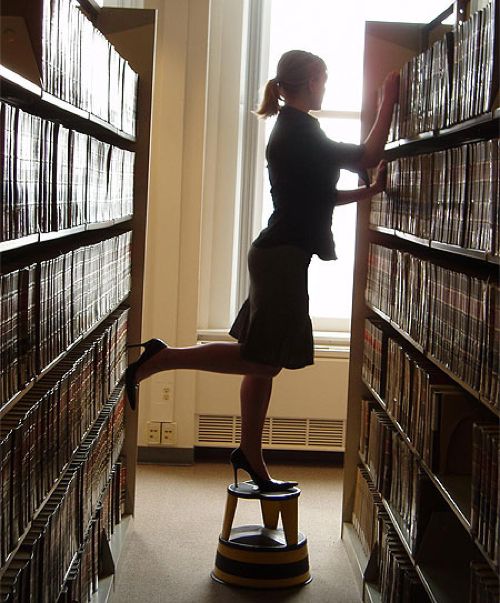
This week, as part of my 120 hours of cataloging, my cataloging supervisor gave me a 7 volume set that constituted the History of Music In San Francisco series, originally published from 1939-1942. The writing of these volumes was due in no small part to the efforts of the Works Progress Administration's "Federal Music Project." It was the goal of this project to document the musical history of the United States while putting its citizens to work and (hopefully) repairing the ailing economy. In addition, there were many orchestras across the country (including Buffalo) that had their start thanks to the WPA.
Was the project a success? Some say yes, some say no. However, it did have a significant impact on the world of music librarianship. In American Music Librarianship, Carol June Bradley detailed the collection development and cataloging processes at the New York Public Library ca1933. She writes "[Carleton Sprague Smith] worked to exploit the collections as he inherited them. The first two years he limited acquisitions to filling in the gaps revealed by inventories; he had the collections searched and bibliographic aids devised to provide maximum access to their specializations; and the utilized the 'emergency workers' and later WPA workers to put existing materials in optimum order while he organized his priorities." See, music librarians, always working for a cause.
Speaking of Miss Bradley, her memorial service will take place on Saturday the 22nd. I discover more and more every day how much of an impact she has had on my career, so I think it is (to quote Lincoln!) "all together fitting and proper" that I attend. Hell, I might even learn something, and from what I've heard about Miss Bradley, she would have preferred it that way.
Oh, and I have to just get this out there. I have the best supervisor ever. She and I had a great discussion today about some "issues." It's nice to be working in such an incredibly supportive environment. I've only ever had that once before, and it was in retail. Support in academia is new and refreshing for me.

